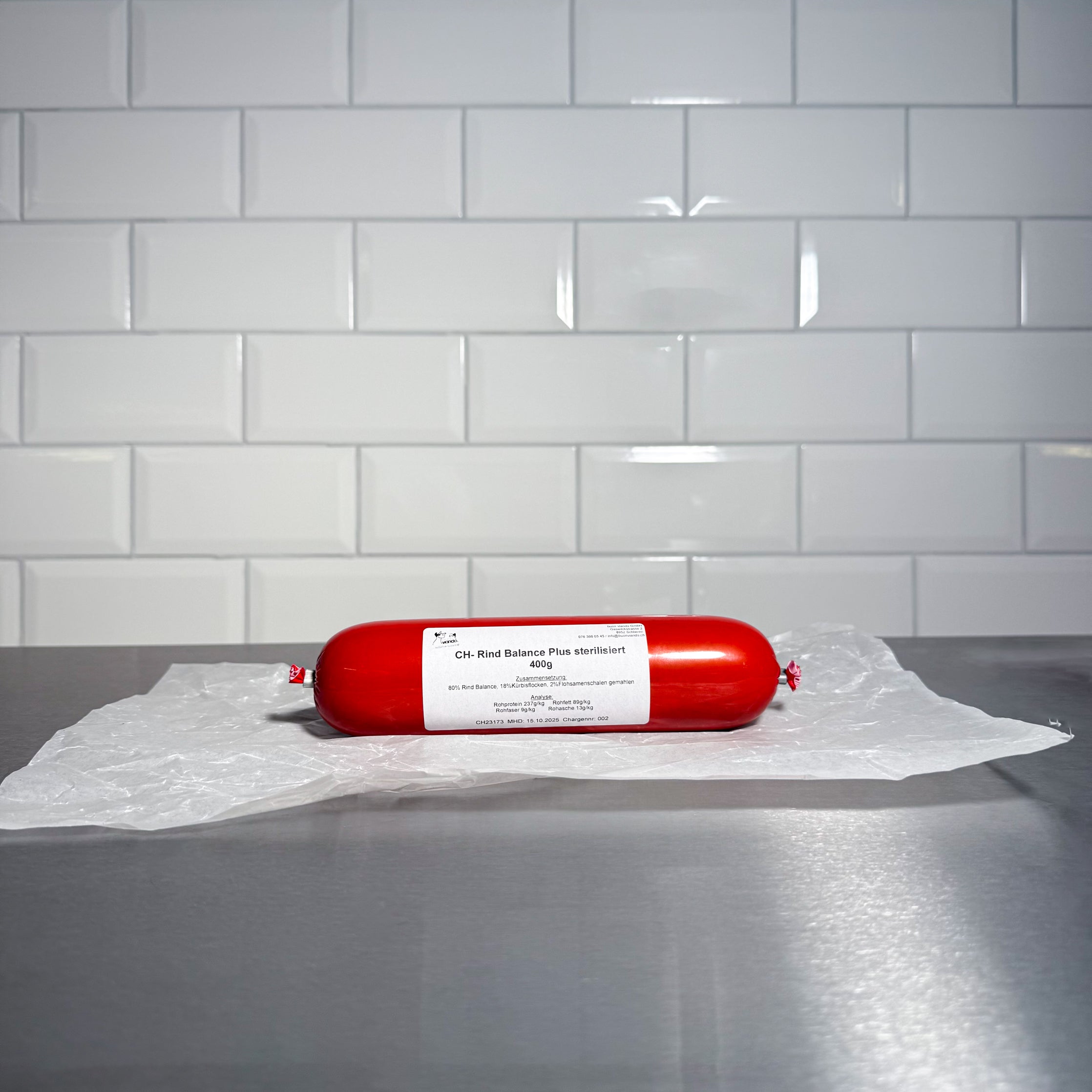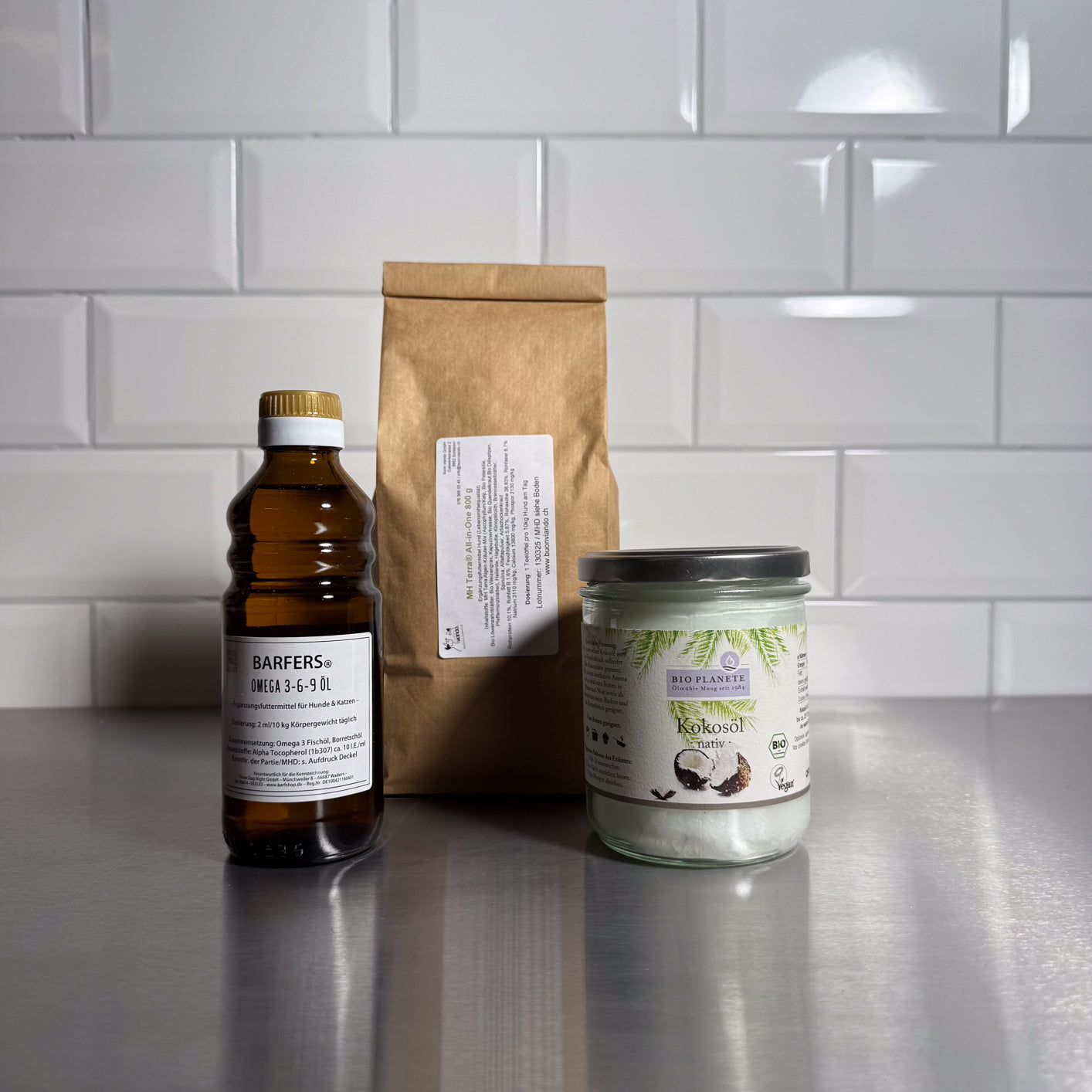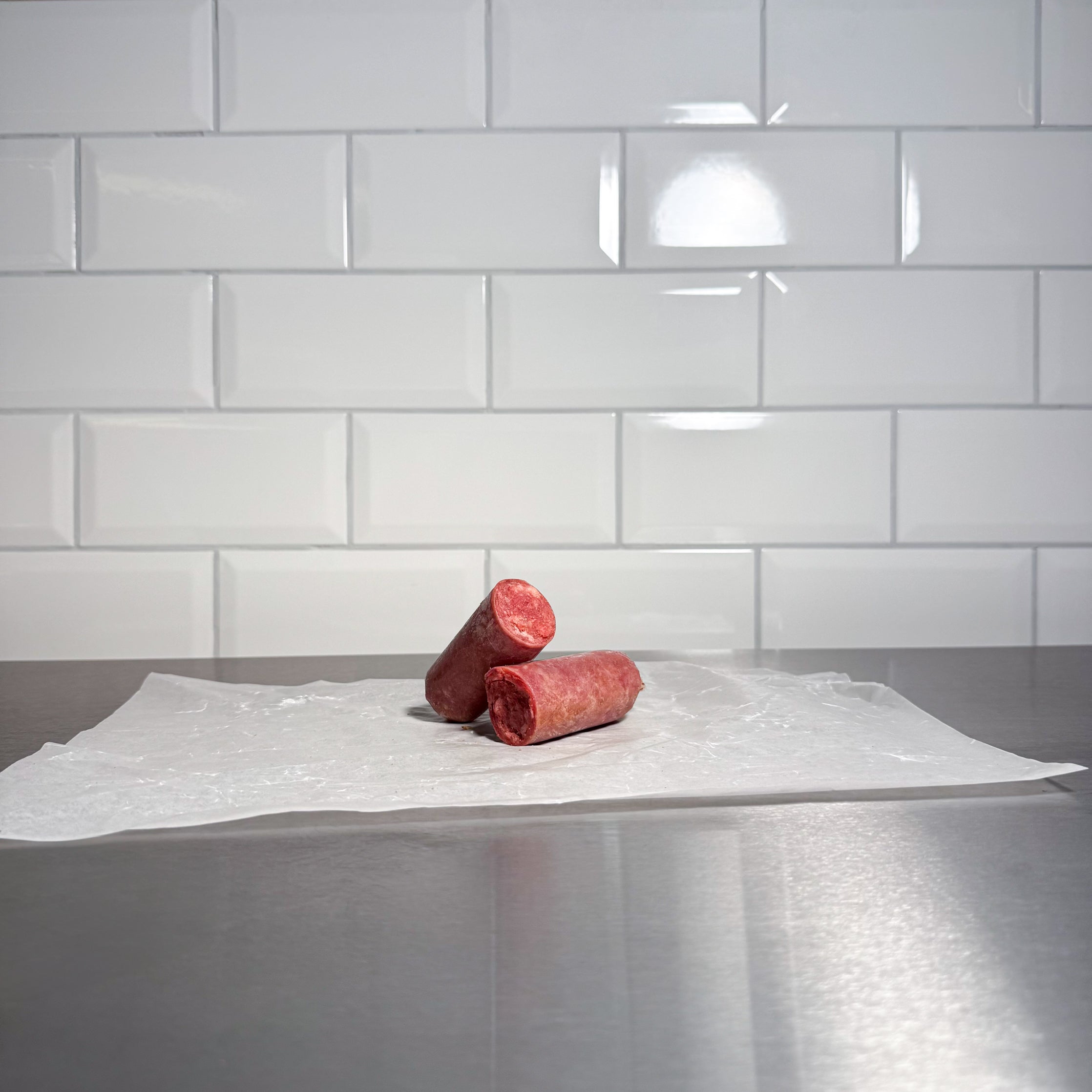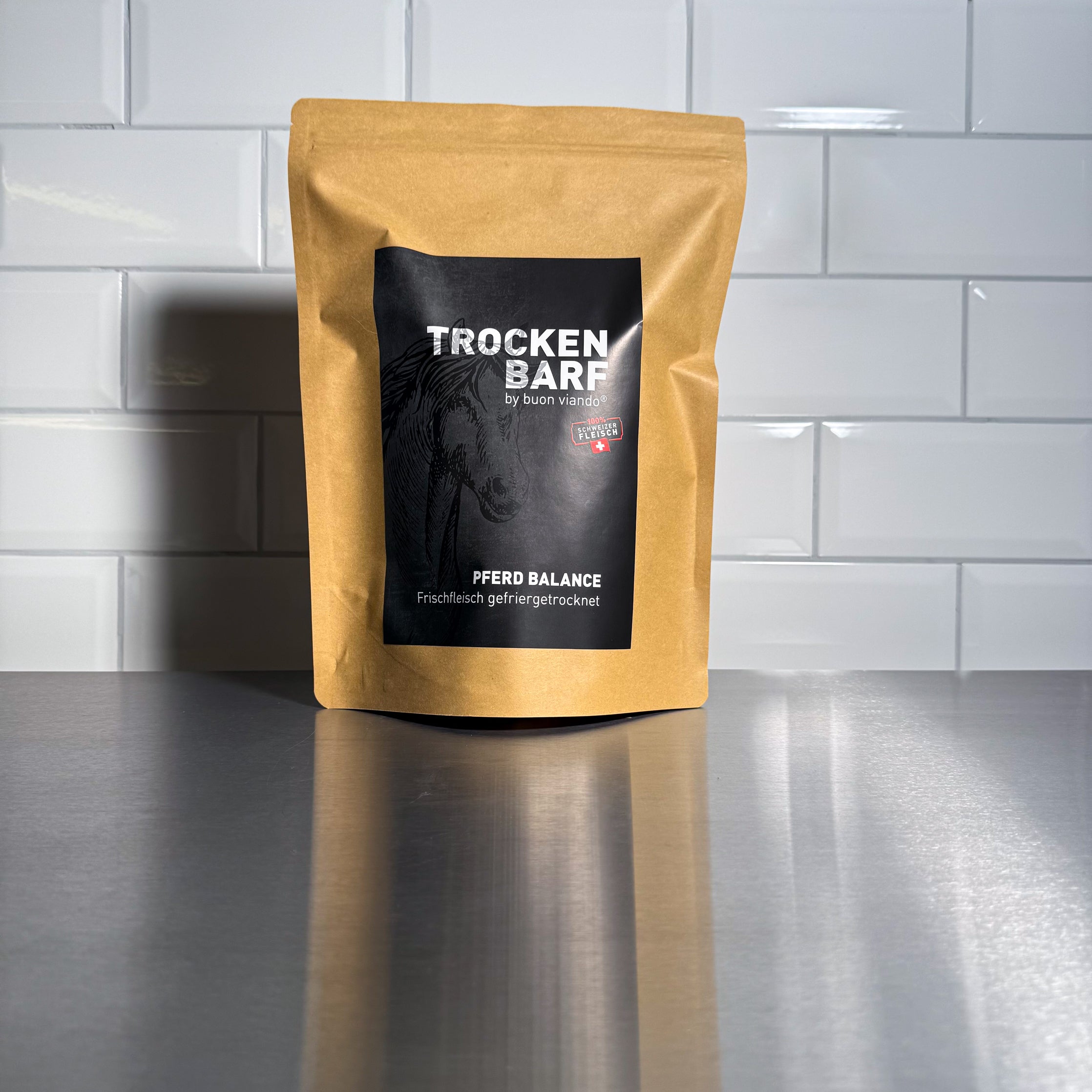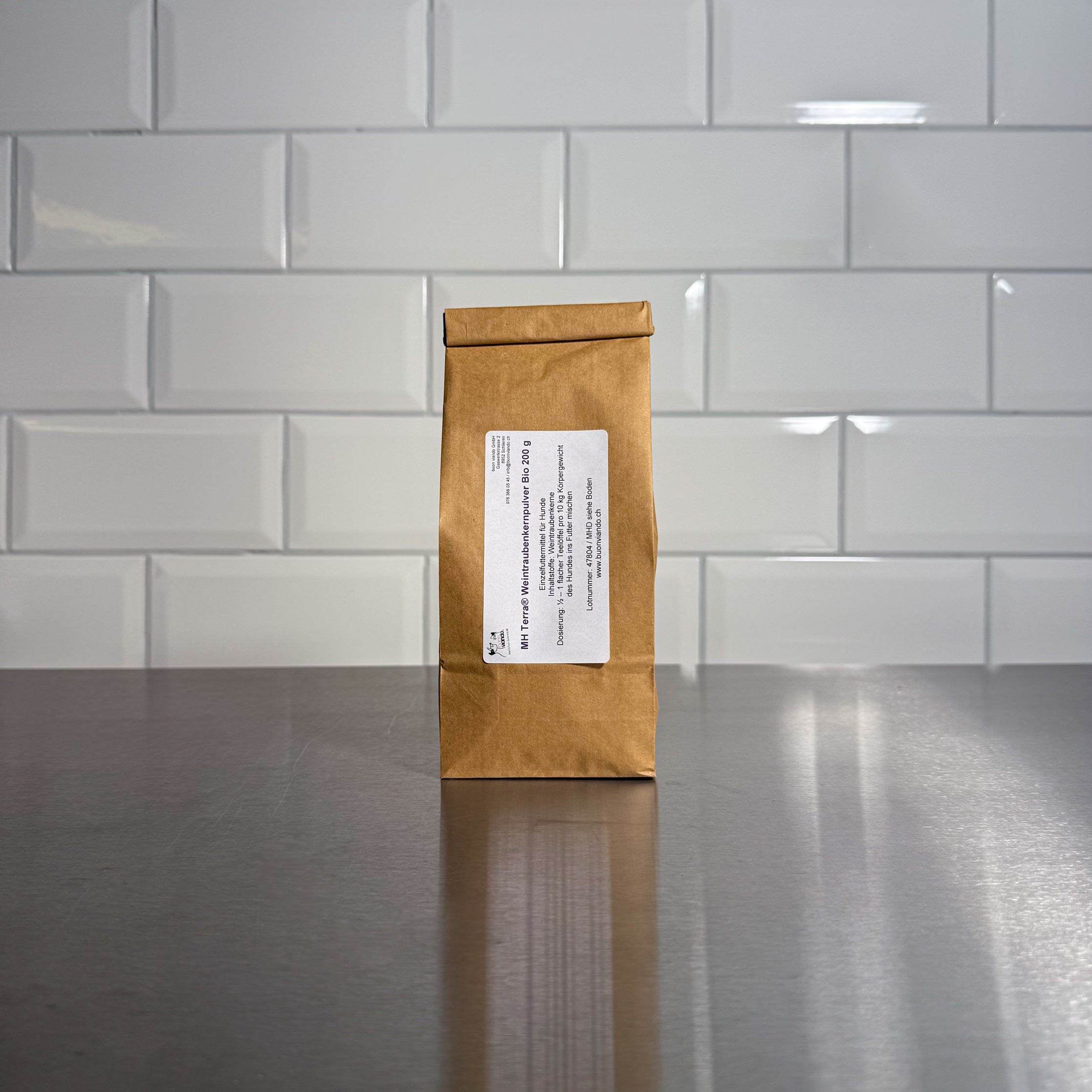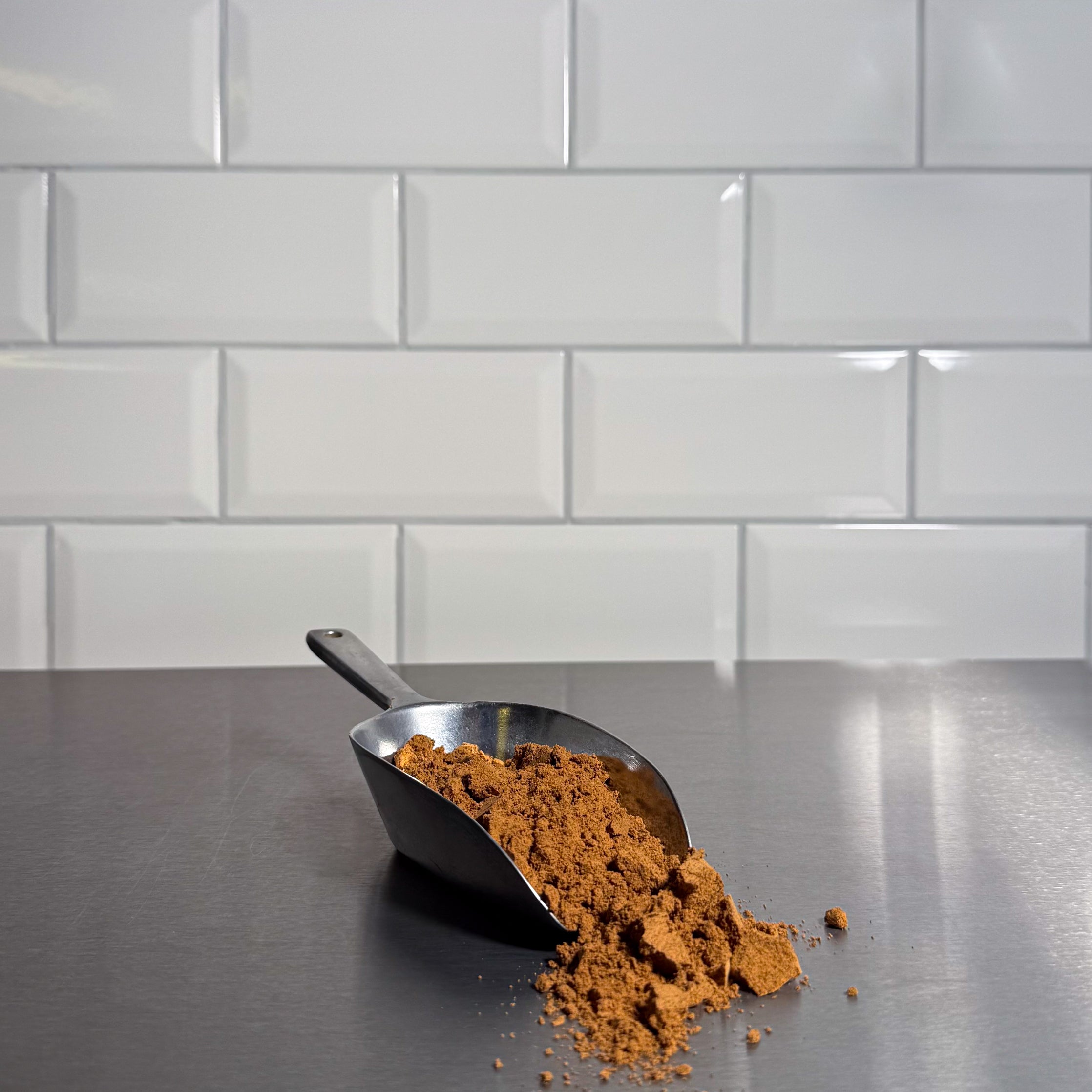What is grape seed meal, actually?
Grape seed meal is obtained from the seeds of ripe grapes, which are dried and finely ground after pressing. What remains is a dark brown powder with a high content of OPC (oligomeric proanthocyanidins) – secondary plant substances known for their cell-protective, anti-inflammatory, and vascular-strengthening properties.
Don't worry: The flour contains no dangerous glucose residues. The toxicity of grapes in dogs, often mentioned in the media, primarily affects the pulp and skin – not the deoiled, dried seeds.
The Effect: Why and When Does Grape Seed Flour Make Sense?
The antioxidant effect of OPC has been well-researched. Targeted support can be particularly beneficial for animals with chronic inflammation, a weak immune system, or increased oxidative stress (e.g., due to age, environmental toxins, medications, or illnesses).
Here are some possible uses:
- Strengthening the Immune System
OPC can neutralize free radicals and support the body's defenses. - Cell Protection in Chronic Diseases
Whether osteoarthritis, tumors, or skin problems—antioxidant protection is always an issue. - Promoting Vascular Health
Circulation can be improved and vascular elasticity strengthened.
-
Skin & coat
Many owners report a shinier coat and less itching - presumably thanks to the cell-regenerating effect. - Anti-Aging
Especially popular with older animals: Grape seed flour is considered a natural means of age-promoting at the cellular level.
As always, caution is advised with cats – they are not small dogs from a nutritional perspective. Their liver detoxification function works differently, so grape seed flour should only be given in minimal doses, if at all. We recommend consulting an experienced veterinary alternative practitioner or nutritionist.
Dosage & Application
Less is often more – grape seed flour is very potent. Depending on body weight, a microdose of approximately 1/5 to 1 flat teaspoon per day is often sufficient for medium-sized dogs. It can be easily mixed into food – preferably with a drop of oil, as the ingredients are fat-soluble.
We recommend feeding grape seed flour in courses – for example, for 6 to 8 weeks, followed by a 2 to 4-week break. This maintains the effect without the body becoming "accustomed" to the support or being unnecessarily stressed. A course of treatment in spring or fall is particularly useful, and for older or convalescent animals, several times a year.
Cats, as mentioned, should only be given this product after consultation and in very small doses – if at all.
Conclusion: Natural cell care with responsibility
Grape seed flour is an exciting natural product with a lot of potential. When dosed correctly, it can be a powerful companion for older, sick, or sensitive animals. But as with everything, use common sense, consider each animal individually, and if unsure, double-check.


